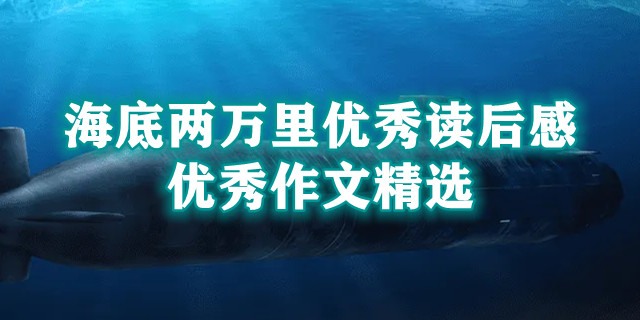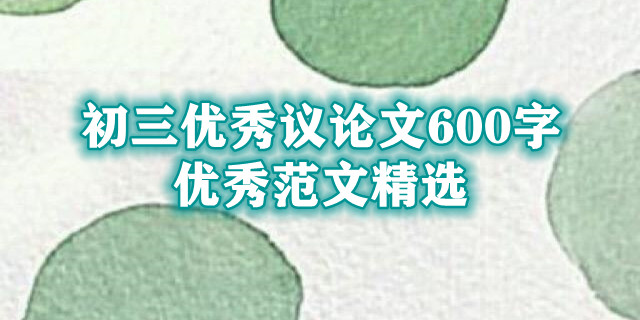英文读后感 To Live Happily All the Time 读后感作文
李 想 北京一零一中学高一阅读书目:三怪客泛舟记 Three Men in a Boat (书虫· 牛津英汉双语读物)
Most fairy tales end like this:“They live happily ever after.” But to George, Harris and J, “ever after” is far from enough. Their belief is to live happily ALL THE TIME. Who are these three guys? They are the “bestest” pals from a humorous English book — Three Men in A Boat.
Just take a look at these three funny guys: You can meet them anywhere at any time. All of them have great aspirations and plenty of passion. But in the morning, none of them like to wake up early. All of them want to be great explorers. But on rainy days, they all prefer to stay by the warm fireplace. Yes, it’s our Harris, George and J. And now, they are taking a vacation on the famous Thames.
They started off in a little boat, which none of them would like to drive. They kept explaining that they didn’t come out for fun—they were taking a rest because of some so called “dreadful disease”. When they were traveling, they couldn’t stop making jokes on others. When they were cooking, they couldn’t stop the eggs from getting on their pans. when they finally gave up the boat and went home by train, they still couldn’t stop telling each other how clever it was to be “three men out of boat”……
Such a simple story has brought me lots of laugher and thoughts. I laughed over their funny troubles and funny talkings all along the trip. And also I found that I came to admire them after laughing each time. Because when they met something in trouble, or their own complicated jobs came, first, they would burst into laughter at once, and then started to solve the problem slowly with partience and happiness. Sometimes I was surprised by them. Because something that happens in our daily life such as losing the wallet, or a bad weather, will make every one of us complain and be upset for long. But how about the three men in the boat? They will certainly laugh at it first! They giggle, they grin, they smile. They have taught me how to laugh at trouble, to smile at hard work, and to laugh away tears. It’s a good way to face my blue days. As a student, I always complain about my homework, my parents, and my classmates. But George, Harris and J told me: there’s no point in complaining. Just face your life and try to find the good side of everything. And also remember to cherish friendship—like the three of them.
Yes, yes. Sometimes they seemed to be “cynical” or “lazy”. But the fire of live, diligence, and happiness is burning in their hearts all the time. To them, the so called “dreadful disease” is only an excuse for their going out to relax. To them, all the trouble is the chance to use both patience and laughter. To them, all the hard work is the gift from God to make them stronger and happier.
Don’t just stare at the “happy ending” of “living happily every after”. Think about the three men in the boat. They are common guys like you and me. But they are all very great—They have the ability to make themselves live happily ALL THE TIME.

《千只鹤》读后感
川端康成对我来说一直是一个特殊的存在,他有一种将伤感的余韵化,使其缠绵不尽的能力。敏感的人读他的小说很容易被这种伤感俘虏,被他的那些文字轻易的褪去一切浮华与喧嚣,不可自抑的沉浸其中。前几天我重读了他的《千只鹤》,再次感受到了那种不可思议的魔力。 《千只鹤》在很多人看来并不是川端最出色的小说,在中国它的名气也远远不如《雪国》、《古都》和《伊豆的舞女》。但是在我看过的川端的所有小说中,最喜欢的就是这篇了。川端在完成《雪国》后,曾说过,除了日本民族的悲伤之美,其他的他一句话也不想写。这种悲伤之美贯穿了他的创作生涯,他是一个对自己内心的极度敏感和对外界的极度漠然真正的艺术家。在〈伊豆的舞女〉中他将这种美拟人化,借着舞女之美表达了他对这种美的憧憬。在〈雪国〉中他就象一个写实主义的画家,将这种美细致的临摹下来。而在〈千只鹤〉中,他探讨了这种美的起源,以及这种美的形态。而且这篇小说是如此的含蓄细腻,优美的近乎悲戚。记得余华曾经在一篇文章中提到过川端康成的语言,说到川端的语言是所有文学家中最柔软的(同时他也提到了卡夫卡,说他的语言是最为坚硬的)。我的感觉就是川端的文字不但柔软,简直就是粘稠。〈千只鹤〉也继承了这种特点,当然这种感觉并不是一两句话能够看出来的,而是一种基于氛围,细节,情感的整体感受。比如,〈千只鹤〉中对夕阳的描写,易谢的牵牛花和古老的葫芦相互辉映的细节等等,这一切的一切都是构成川端柔软语言的棋子。这种柔软是美的,它有着棉布一般的纹理和丝绸一般的细腻,而且当它和川端心中的悲伤之美结合起来后,有着难以想象的感染力。它们的结合使小说成为了一个独立于作者本身而存在的个体,超越了情节,冲突等的羁绊,只有挥之不去的浓浓伤感萦绕在读者心中。
当然〈千只鹤〉的情节是简单的,就象其他所有川端康成的小说一样——一个一流的小说家是不屑于用离奇的情节来吸引读者的。但是一个一流的小说家往往很在意小说中的人物,因为他们是小说的灵魂,用昆得拉的话来说就是:他们并不一定是作者观点,立场的代言人,而是小说超越作者而得以存在的原因,他们聆听的是小说的智慧,上帝的笑声而不是作者的说教(大意)。在这篇小说中,川端刻画了菊治,太田夫人,文子,近子和稻村小姐等几个人物。就象所有优秀的小说一样,他们的命运,他们的思想都在小说创作的过程中自然而然的显现,并不一定是川端预先所想,一切的发展就如一个不受控制的梦境,充满矛盾却无比真实:
太田夫人深深的爱着菊治已故的父亲,与菊治一次偶然的见面却不可抑制的将这种爱转移到情人的儿子身上。这种背负着道德沦丧的爱是如此的不可抵挡,最后她只有用自杀的方法企图来减轻自己的罪孽。文子是太田夫人的独生女儿,背负着太田夫人不忠和伦丧的双重不幸,太田夫人生前,她深深为自己母亲的行为感到羞耻。但是却无可奈何的接受。而在太田夫人死后她却认为这种罪孽只是一种深深的悲伤。近子是菊治父亲的茶道学生,也是菊治父亲的情人之一,她出于太田夫人的嫉恨想撮合菊治与稻村小姐,让菊治彻底摆脱那个充满妖气的女人。而菊治却不可思议的拒绝了近子的安排,接受了温柔太田夫人,开始并没有感到什么道德上的责备,后来却在罪孽的阴影中感到了太田夫人不可思议的美。并且与太田夫人一样,将对这种美的深切思念转移到了温柔坚韧的文子身上。
在这篇小说中,我们可以看出那种悲伤的唯美并不是产生于纯洁与实在。恰恰相反,它产生于丑陋,不协调与道德的缺陷(这种不协调也表现在〈雪国〉中的驹子身上)。在道德和美无比复杂的缠结中,川端真实的再现了人心理深沉的孤独感和不可抹杀的罪恶感。人们因为孤独而陶醉于罪孽,因为丑陋而倾倒于悲伤。人的天性(对唯美的向往)与人的存在本身有着不可调和的矛盾,而恰恰是这种矛盾使人不可挽回的向往唯美。
在菊治的记忆中,美是抽象的,就象光一样不可捉摸,而丑陋却是具体的,就象近子乳房上可怕的黑痣一样无比鲜明不可抹杀,川端康成在写完〈千只鹤〉后说,他憧憬着在夕阳中的树林和天空下纯白的千只鹤翩翩翱翔。并且提诗曰:春空千鹤若幻梦。的确,一切美的的憧憬,美的向往都是虚无缥缈的,好象幻梦一般!



